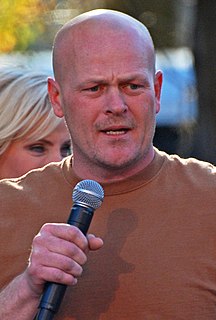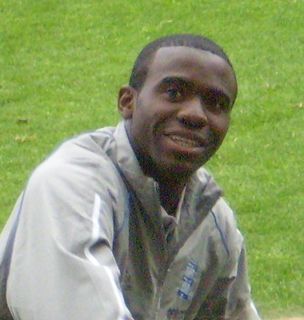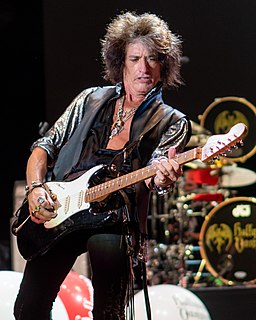A Quote by John Lithgow
Next to the word 'luvvie' in the dictionary, there's a picture of me. At least in the American editions.
Related Quotes
Actually if a writer needs a dictionary he should not write. He should have read the dictionary at least three times from beginning to end and then have loaned it to someone who needs it. There are only certain words which are valid and similes (bring me my dictionary) are like defective ammunition (the lowest thing I can think of at this time).
In the speech sound wave, one word runs into the next seamlessly; there are no little silences between spoken words the way there are white spaces between written words. We simply hallucinate word boundaries when we reach the end of a stretch of sound that matches some entry in our mental dictionary.
There's always a time in any series of work where you get to a certain point and your work is going steadily and each picture is better than the next, and then you sort of level off and that's when you realize that it's not that each picture is better then the next, it's that each picture up's the ante. And that every time you take one good picture, the next one has got to be better.
My language limitations here are real. My vocabulary is adequate for writing notes and keeping journals but absolutely useless for an active moral life. If I really knew this language, there would surely be in my head, as there is in Webster's or the Dictionary of American Slang, that unreducible verb designed to tell a person like me what to do next.
I can hardly believe that I even know this, but I am aware that Noah Webster's original dictionary, apart from being the first truly American lexicography, was a kind of line in the sand. It claimed a very discrete, American form of the English language, explicitly to compare it to the English of our erstwhile colonial masters who had been operating under Dr. Johnson's dictionary rules for well over a century.


































